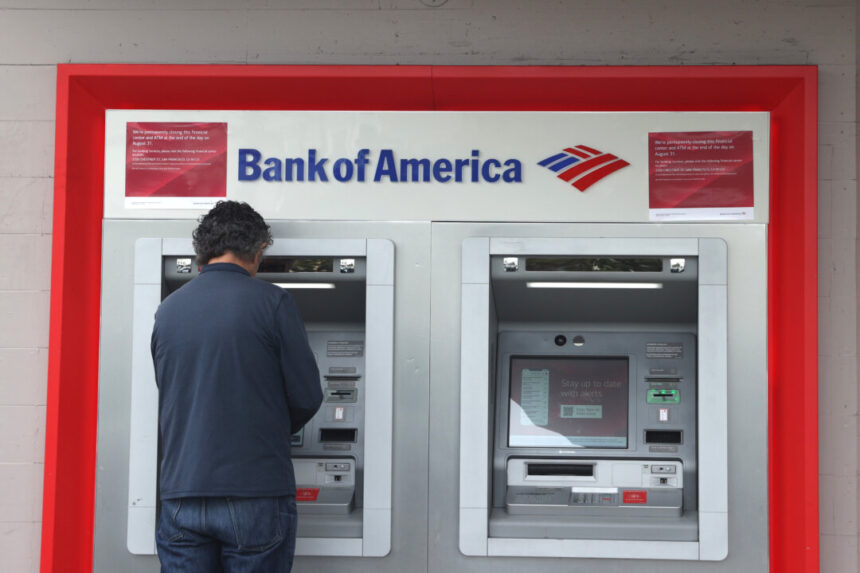According to Indiana State Treasurer Daniel Elliott, “This isn’t the right way to do business in America.”
Allegations continue to surface against America’s largest banks for de-banking customers based on their political or religious views.
During a Bank of America shareholder meeting on April 24, a shareholder group accused the bank of discriminating against conservative and Christian groups. They urged the bank to conduct an internal investigation to determine the extent of this practice.
Jeremy Tedesco, senior counsel at the Alliance Defending Freedom, emphasized the need for banks to regain trust with the American public. He stated during a press conference after the shareholder meeting, “Providing needed transparency about questions regarding politicized de-banking is a clear path toward rebuilding this trust, and we will continue to call upon major banks like Bank of America to reverse course, stop evading their own shareholders, and correct the underlying policies that lead to de-banking.”
State attorney generals and state treasurers have also raised similar concerns about America’s second-largest bank, which holds nearly $2.5 trillion in assets.
Indiana State Treasurer Daniel Elliott pointed out that several de-banking incidents suggest a pattern of political or religious discrimination by the bank.
“When you start to look at it as a whole, it suddenly becomes a very, very serious—and frankly scary—endeavor,” Mr. Elliott told reporters. “This isn’t the right way to do business in America.”
On April 18, 15 state financial officers wrote to Bank of America CEO Brian Moynihan expressing concerns about the bank’s track record of politicized de-banking.
Bank of America, however, denied the accusation that it rejects customers based on political or religious beliefs.
Bill Haldin, a spokesman for Bank of America, stated, “Given the large number of nonprofits we serve that are affiliated with religious organizations, it’s absurd to think religious beliefs are a factor in any account closing decision. Very simply, they are not.”
Only 3 percent of the bank’s shareholders voted in favor of the proposal to evaluate the bank’s practices. Mr. Tedesco attributed this to the influence of large institutional asset managers and proxy agents supporting progressive agendas like the environmental, social, and governance (ESG) movement.
“Bank of America has publicly asserted that it is absurd to think religious beliefs are a factor in any account decision,” he said. “What is absurd is that Bank of America is refusing to undertake a simple analysis to determine whether its policies and practices are resulting in viewpoint-based banking decisions that harm the bank and its shareholders.”
The letter, led by Kansas AG Kris Kobach and co-signed by AGs from several states, highlighted instances where Bank of America closed accounts of Christian ministries and charities for non-financial reasons.
The AGs warned Bank of America that such practices could lead to legal and regulatory risks, as the bank uses vague criteria like allegations of promoting “intolerance” or “hate” against conservative Christians.
“[Bank of America] excludes religious charities from its charitable giving and employee charitable match programs,” the AGs stated. “And Bank of America is indoctrinating its employees with a divisive ‘racial reeducation program’ that encourages employees to be ‘woke at work,’ instructing white employees in particular to ‘decolonize [their] mind’ and ‘cede power to people of color.’”
Tennessee Governor Bill Lee signed a bill into law on April 23 that prohibits large banks and insurance companies from engaging in political or religious discrimination against state residents.
Please rewrite the following sentence:
“The cat is sleeping on the windowsill.”
“The windowsill is where the cat is peacefully napping.”
Source link







